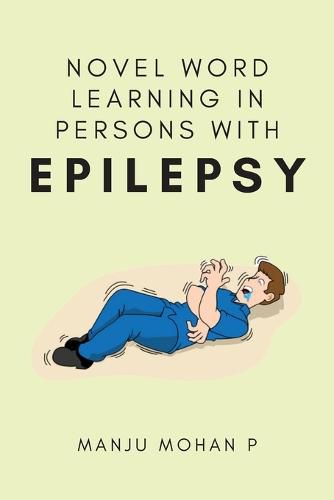Readings Newsletter
Become a Readings Member to make your shopping experience even easier.
Sign in or sign up for free!
You’re not far away from qualifying for FREE standard shipping within Australia
You’ve qualified for FREE standard shipping within Australia
The cart is loading…






This title is printed to order. This book may have been self-published. If so, we cannot guarantee the quality of the content. In the main most books will have gone through the editing process however some may not. We therefore suggest that you be aware of this before ordering this book. If in doubt check either the author or publisher’s details as we are unable to accept any returns unless they are faulty. Please contact us if you have any questions.
Language learning is a continuous process throughout one's lifespan and is vital for language development. Word learning which mediates language acquisition is a cognitive skill and is a special component of language that begins in childhood and continues to adulthood. Humans can learn new words with limited exposure at developmental and even adult stages. Word learning can bring about structural and functional changes in the brain in both younger and older individuals. Developmental literature on word learning had been the core area of research for many years, however, current research on adult language learning from the point of view of both first and second language acquisition is gearing up. Word learning involves multiple cognitive processes. When a novel word is learned, one has to acquire its phonological form and integrate its meaning into the existing semantic and lexical networks in the brain. This essentially employs the declarative memory systems. With multiple exposures and the passage of time from days, to weeks to months or years, the new word gets fully integrated into one's semantic network. In addition to this, language learning also involves syntactic, morphological, and pragmatic rules on how to use the newly acquired word. In the current study, novel word learning is conceived as associative learning between novel words and external referents and does not account for its true integration at a syntactic/ morphological level.
$9.00 standard shipping within Australia
FREE standard shipping within Australia for orders over $100.00
Express & International shipping calculated at checkout
This title is printed to order. This book may have been self-published. If so, we cannot guarantee the quality of the content. In the main most books will have gone through the editing process however some may not. We therefore suggest that you be aware of this before ordering this book. If in doubt check either the author or publisher’s details as we are unable to accept any returns unless they are faulty. Please contact us if you have any questions.
Language learning is a continuous process throughout one's lifespan and is vital for language development. Word learning which mediates language acquisition is a cognitive skill and is a special component of language that begins in childhood and continues to adulthood. Humans can learn new words with limited exposure at developmental and even adult stages. Word learning can bring about structural and functional changes in the brain in both younger and older individuals. Developmental literature on word learning had been the core area of research for many years, however, current research on adult language learning from the point of view of both first and second language acquisition is gearing up. Word learning involves multiple cognitive processes. When a novel word is learned, one has to acquire its phonological form and integrate its meaning into the existing semantic and lexical networks in the brain. This essentially employs the declarative memory systems. With multiple exposures and the passage of time from days, to weeks to months or years, the new word gets fully integrated into one's semantic network. In addition to this, language learning also involves syntactic, morphological, and pragmatic rules on how to use the newly acquired word. In the current study, novel word learning is conceived as associative learning between novel words and external referents and does not account for its true integration at a syntactic/ morphological level.